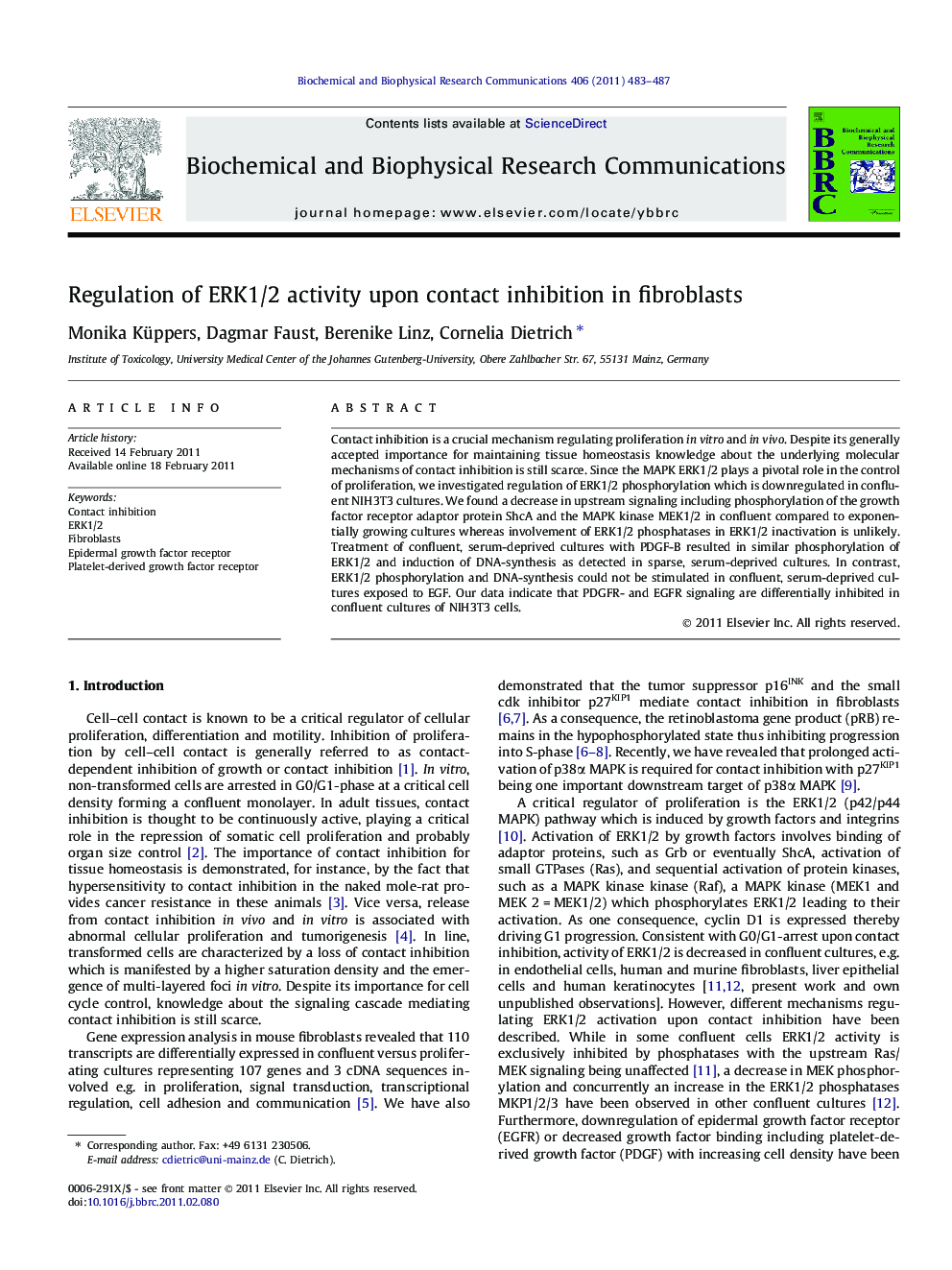| Article ID | Journal | Published Year | Pages | File Type |
|---|---|---|---|---|
| 1930926 | Biochemical and Biophysical Research Communications | 2011 | 5 Pages |
Contact inhibition is a crucial mechanism regulating proliferation in vitro and in vivo. Despite its generally accepted importance for maintaining tissue homeostasis knowledge about the underlying molecular mechanisms of contact inhibition is still scarce. Since the MAPK ERK1/2 plays a pivotal role in the control of proliferation, we investigated regulation of ERK1/2 phosphorylation which is downregulated in confluent NIH3T3 cultures. We found a decrease in upstream signaling including phosphorylation of the growth factor receptor adaptor protein ShcA and the MAPK kinase MEK1/2 in confluent compared to exponentially growing cultures whereas involvement of ERK1/2 phosphatases in ERK1/2 inactivation is unlikely. Treatment of confluent, serum-deprived cultures with PDGF-B resulted in similar phosphorylation of ERK1/2 and induction of DNA-synthesis as detected in sparse, serum-deprived cultures. In contrast, ERK1/2 phosphorylation and DNA-synthesis could not be stimulated in confluent, serum-deprived cultures exposed to EGF. Our data indicate that PDGFR- and EGFR signaling are differentially inhibited in confluent cultures of NIH3T3 cells.
Research highlights► Regulation of ERK1/2 activity upon contact inhibition was investigated. ► Upstream activation of ERK is attenuated upon contact inhibition. ► ERK phosphatases are probably not involved in ERK1/2 dephosphorylation. ► Signaling of the EGFR and PDGFR is differentially inhibited upon contact inhibition.
